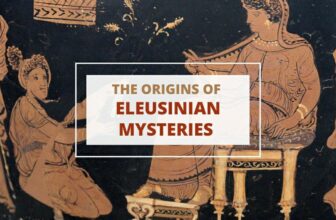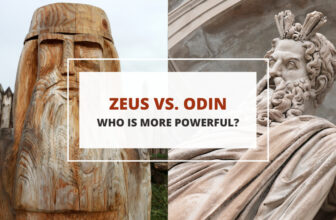
Table of Contents
Midas is probably one of the most famous characters to appear in the stories of Greek mythology. He’s remembered for the power he possessed to turn everything he touched into solid gold. The story of Midas has been greatly adapted from the time of the ancient Greeks, with many changes added to it, but at its core, it’s a lesson on greed.
Midas – King of Phrygia
Midas was the adopted son of King Gordias and the goddess Cybele. While Midas was still a baby, hundreds of ants carried grains of wheat to his mouth. This was a clear sign that he was destined to be the wealthiest king of all.
Midas became the king of Phrygia, located in Asia Minor and the events of his life story are set there, as well as in Macedonia and Thrace. It’s said that he and his people lived near Mount Pieria, where Midas was a faithful follower of Orpheus, the famous musician.
Midas and his people moved to Thrace and finally to Asia minor, where they became known as ‘Phrygians’. In Asia Minor, Midas founded the city of Ankara. However, he’s not remembered as a founding king but is instead known for his ‘golden touch’.
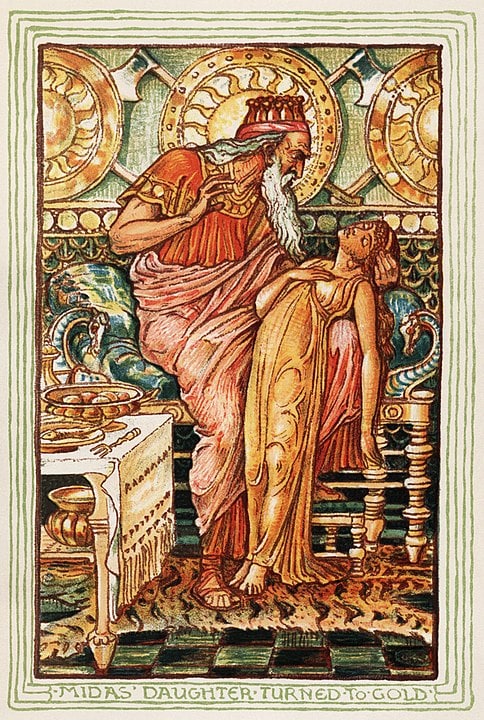
Midas and the Golden Touch
Dionysus, the Greek god of wine, theater and religious ecstasy, was preparing to go to war. With his retinue, he began making his way from Thrace to Phrygia. One of the members of his retinue was Silenos, the satyr who was both tutor and companion to Dionysus.
Silenos had become separated from the band of travelers, and found himself in Midas’ gardens. The servants took him to their King. Midas welcomed Silenos into his home and gave him all the food and drink he could ever want. In return, the satyr entertained the king’s family and the royal court.
Silenos stayed at the palace for ten days and then Midas guided him back to Dionysus. Dionysus was so grateful that Silenos had been very well looked after that he declared he would grant Midas any wish as a reward.
It didn’t take Midas too long to think about his wish , because just like most other mortals, he treasured gold and wealth over everything else. He asked Dionysus to give him the ability to turn everything he touched into gold. Dionysus warned Midas to reconsider, but on the king’s insistence, agreed to the wish. King Midas was given the Golden Touch.
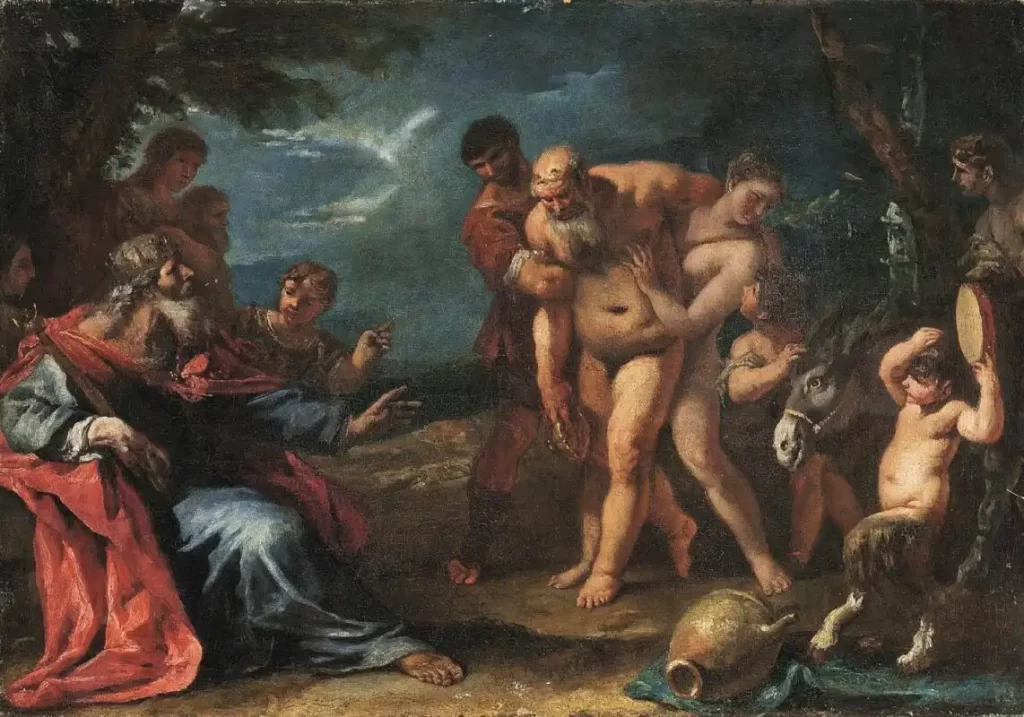
The Curse of the Golden Touch
At first, Midas was thrilled with his gift. He went about turning worthless bits of stone into priceless nuggets of gold. However, all too quickly, the novelty of the Touch wore off and he began to face problems with his powers since his food and drink also turned to gold as soon as he touched them. Hungry and concerned, Midas began to regret his gift.
Midas rushed after Dionysus and asked him to take back the gift he had been given. Since Dionysus was still in a really good mood, he told Midas how he could get rid of the Golden Touch himself.
He told Midas to take a bath in the head waters of River Pactolus, which ran near Mount Tmolus. Midas tried it and as he bathed, the river began to carry an abundance of gold. As he came out of the water, Midas realized that the Golden Touch had left him. The River Pactolus became famous for the copious amounts of gold it carried, which later became the source of King Croesus’ wealth.
In later versions, Midas daughter was upset that all the flowers had turned to gold and came to see her father. When he touched her, she immediately turned into a statue of gold. This made Midas realize that his gift was actually a curse. He then sought the help of Dionysus to reverse the gift.
The Contest Between Apollo and Pan
Another famous myth involving King Midas tells of his presence at a musical contest between Pan, the god of the wild, and Apollo, the god of music. Pan had boasted that his syrinx was a much better musical instrument than Apollo’s lyre, and so a contest was held to decide which instrument was the better one. The Ourea Tmolus, the mountain god, was called upon as the judge to give the final decision.
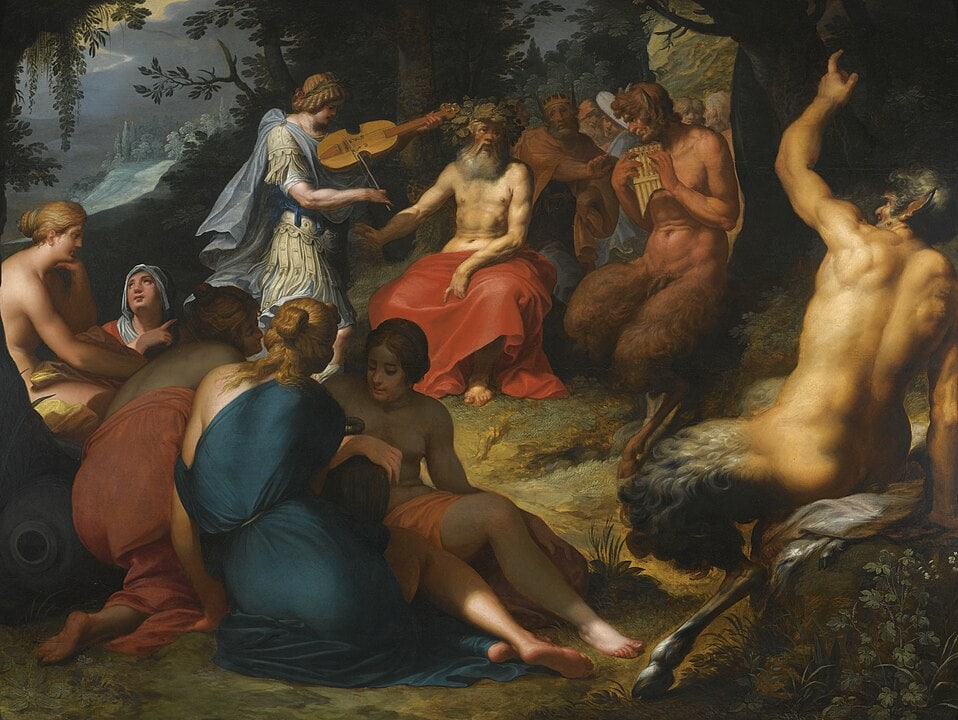
Tmolus declared that Apollo and his lyre had won the contest, and everyone who was present agreed, except for King Midas who very loudly proclaimed that Pan’s instrument was the more superior. Apollo felt slighted and, of course, no god would allow any mortal to insult them.
In anger, he changed Midas’ ears into the ears of a donkey for it was only an ass that couldn’t recognize the beauty of his music.
Midas returned home and tried his best to hide his new ears under a purple turban or a Phyrgian cap. It didn’t help, however, and the barber who cut his hair discovered his secret, but he was sworn to secrecy.
The barber felt that he had to speak about the secret but he was scared to break his promise to the king so he dug a hole in the earth and spoke the words ‘King Midas has asses’ ears’ into it. Then, he filled up the hole again.
Unfortunately for him, reeds grew from the hole and whenever the wind blew, the reeds whispered ‘King Midas has asses’ ears’. The king’s secret was revealed to everyone within earshot.
King Midas Son – Ankhyros
Ankhyros was one of Midas’ sons who was well known for his self-sacrifice. One day, an enormous sinkhole opened up in a place called Celaenae and as it grew larger and larger, many people and homes fell into it. King Midas quickly consulted the Oracles about how he should tackle the sinkhole and he was advised that it would close up if he threw the most precious thing he owned into it.
Midas began throwing all manner of items, such as silver and gold objects, into the sinkhole but it continued to grow. His son Ankhyros watched his father struggle and he, unlike his father, realized that there was nothing in the world more precious than life so he rode his horse straight into the hole. At once, the sinkhole closed up after him.
Death of Midas
Accounts of Midas’ death vary. Some sources suggest that King Midas committed suicide by drinking ox blood when the Cimmerians invaded his kingdom. Others propose that he may have died of starvation and dehydration as a consequence of the Golden Touch. These versions, however, are less established compared to the other aspects of his myth.
In Brief
The story of King Midas and the Golden Touch has been told and retold for centuries. It comes with a moral, teaching us about the consequences that can result from being too greedy for wealth and riches.




